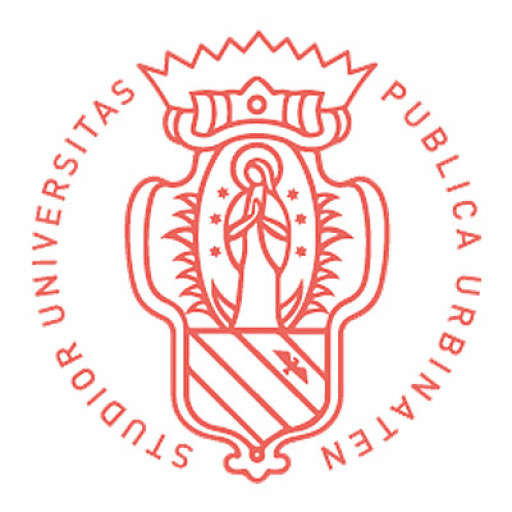Photos of university / #uniofbath
Knowledge Transfer Partnerships (KTP) at the University of Bath are innovative collaborations between academia and industry designed to foster knowledge exchange, drive innovation, and support the growth of businesses across various sectors. This programme connects university experts with companies to work on strategic projects that address real-world challenges, enhance productivity, and develop new products or processes. KTPs enable organizations to access cutting-edge research, technical expertise, and innovative methodologies provided by university staff, often leading to significant competitive advantages and business growth.
Participants in the KTP programme typically include graduate associates, who are highly skilled individuals recruited from the university, working on a specific project under the supervision of academic mentors and company managers. The programme duration generally spans between one to three years, during which the associate dedicates their time to solving a particular problem or exploring new opportunities identified by the partner company. Funding for KTPs is provided jointly by government agencies, the university, and participating businesses, making this an effective and financially supported way for companies to innovate without bearing the full cost of research and development.
The University of Bath's approach to KTP emphasises practical impact and long-term collaboration. The university's strong research base across engineering, technology, science, and business disciplines enhances the effectiveness of these partnerships. Companies benefit from bespoke solutions, knowledge transfer, and the development of skills within their teams, while university staff and students gain valuable real-world experience and insights into industry needs. The programme often results in patents, publications, product development, and enhanced commercial outcomes for the partner businesses.
Participation in a KTP at the University of Bath can also contribute to academic attainment for students involved, providing unparalleled opportunities for applied research, experience in a commercial environment, and professional development. The university prides itself on supporting innovation and fostering a dynamic ecosystem where academic expertise meets business demands. This mutually beneficial partnership model not only boosts regional and national economic prosperity but also promotes sustainable growth through continuous knowledge exchange and collaborative problem-solving.
In summary, the University of Bath’s Knowledge Transfer Partnerships programme is a vital initiative designed to bridge the gap between academia and industry, enabling innovative solutions, fostering skills development, and creating significant value for businesses, knowledge creators, and the wider economy.
The Knowledge Transfer Partnerships (KTP) at the University of Bath provide an innovative collaborative framework that connects businesses with university expertise to solve real-world challenges and foster innovation. This program is designed to help companies access academic knowledge, research capabilities, and specialized skills to develop new products, improve processes, or implement new technologies. KTP projects are typically carried out by a recent graduate or a PhD holder, known as the Associate, who works full-time within the company under the guidance of academic supervisors from the university. This synergy ensures that the latest scientific research and practical industry insights are combined to deliver impactful solutions tailored to the company's specific needs.
The core aim of the programme is to transfer knowledge effectively between academia and the business sector, creating value for both parties. For businesses, participating in KTP offers the opportunity to accelerate innovation, increase productivity, and gain a competitive edge through access to cutting-edge research and expertise. For the University of Bath, it provides a platform to apply academic research in practical contexts, enhance its research outputs, and strengthen industry partnerships. The program typically lasts between 12 and 36 months, during which the Associate works on a strategic project aligned with the company's goals, contributing directly to business growth and development.
KTP projects are fully funded, with government support covering a significant portion of the costs, making it an attractive option for companies seeking to innovate without bearing the full financial burden. The university's experienced KTP team provides dedicated support throughout the project lifecycle, from initial application and partnership development to project management and completion. The program encourages sustainable collaborations that can lead to long-term partnerships, continuous innovation, and knowledge exchange beyond the initial project.
Participants benefit from tailored training and mentorship, enabling the Associate to develop professional skills that are valuable for their career progression. Moreover, the company gains access to academic resources, research facilities, and expert advice, fostering an environment of open innovation. The programme is especially suitable for small to medium-sized enterprises looking to leverage university expertise but is also valuable for larger organizations aiming to strengthen their innovation pipeline.
Overall, the University of Bath’s Knowledge Transfer Partnerships programme exemplifies a commitment to fostering applied research, supporting business innovation, and nurturing talent development. Through strategic collaboration, companies can realize tangible benefits including increased efficiency, technological advancement, and market expansion, all while contributing to the university’s mission of societal and economic impact. Whether you are seeking to develop a new product, improve your manufacturing process, or explore emerging technologies, the KTP programme offers a structured, supportive platform to turn ideas into reality.
Program requirements for the Knowledge Transfer and Knowledge Transfer Partnerships at the University of Bath typically include a combination of academic qualifications, professional experience, and specific project-related skills. Applicants are generally expected to hold a relevant undergraduate degree, often a minimum of a second-class honours or equivalent in a discipline related to the project area, such as engineering, science, technology, or business. For more advanced projects, a master's degree or higher qualification may be preferred or required.
In addition to academic qualifications, relevant industry experience is highly valued, especially practical experience in innovation, research, or commercialization activities. Candidates should demonstrate a strong understanding of their field, including familiarity with current research developments, industry standards, and technological advancements. Effective communication skills are essential, as the programme involves collaboration between academia and industry partners, requiring applicants to articulate complex ideas clearly to both technical and non-technical audiences.
Furthermore, applicants must exhibit strong project management capabilities, including the ability to plan, execute, and evaluate research and development activities within set timeframes and budgets. Creativity and problem-solving skills are crucial, as projects often address real-world challenges that demand innovative solutions. A capacity for teamwork and stakeholder engagement is important, as successful partnerships depend on the ability to work effectively with university researchers, industry representatives, and other stakeholders.
Some programmes may require applicants to demonstrate prior experience in grant writing, funding acquisition, or commercializing research outputs. Knowledge of intellectual property management, market analysis, and innovation strategies can be advantageous. Fluency in English is necessary for all applicants, and some programmes may require proof of proficiency through tests such as IELTS or TOEFL.
Candidates should also be prepared to undertake training and development activities offered by the programme, which may include workshops on research methodologies, entrepreneurship, or knowledge transfer techniques. Overall, the programme seeks individuals who are motivated, proactive, and capable of bridging the gap between academic research and industry needs to foster technological advancement and economic growth.
Financing studies for Knowledge Transfer and Knowledge Transfer Partnerships at the University of Bath are designed to facilitate collaboration between academic institutions and industry partners, fostering innovation and practical research. These programs often involve a combination of funding sources aimed at supporting the development and application of new knowledge within businesses, public sector organizations, and non-profit entities. Typically, the funding includes government grants, industry contributions, and sometimes European Union funds, depending on the specific partnership and geographical scope. The UK Government’s Innovate UK is a significant contributor to supporting Knowledge Transfer Partnerships (KTPs), providing grants that cover a substantial portion of project costs. These grants are structured to encourage small and medium-sized enterprises (SMEs) to engage with academic expertise, with the aim of improving competitiveness and productivity.
University of Bath’s involvement in such programs often includes financial support through its own resources, administrative assistance, and access to specialized facilities or research assistance. The costs covered by the funding generally include academic staff time, research expenses, and sometimes equipment or technology needed to execute the project plan. Participants in the program—usually the industry partner—contribute a share of funding, which can vary depending on the size and nature of the project. For SMEs, costs are often subsidized to incentivize participation and reduce barriers to engaging with academic research.
In many cases, additional financial support may be available through regional development agencies or innovation funds that target economic growth and technological advancement within specific sectors or regions. Universities like Bath may also provide certain in-kind support, such as access to laboratory facilities or project management expertise, to enhance the financial viability of these collaborations. The overall aim of funding arrangements in these programs is to make the partnership sustainable and mutually beneficial, ultimately driving innovation, skills development, and enterprise growth.
Participants are advised to consult the University of Bath’s official sources or contact their research support services for detailed, up-to-date information on funding opportunities, eligibility criteria, and application processes relevant to Knowledge Transfer and Knowledge Transfer Partnerships.
Knowledge Transfer Partnerships (KTPs) at the University of Bath are collaborative initiatives designed to foster innovation and economic growth by connecting businesses with university expertise. These partnerships typically involve a university graduate or postgraduate student working directly within a company to solve specific technical or business challenges, applying academic research and knowledge to real-world industry problems. The program aims to improve the firm's productivity, competitiveness, and innovation capabilities while providing valuable practical experience for the graduate or researcher involved.
At the University of Bath, KTPs are managed through a dedicated team that ensures the alignment of project objectives with both university research strengths and industry needs. The projects usually last between 12 to 36 months, during which the associate works at the company’s premises under the supervision of both academic mentors and industrial supervisors. This partnership model encourages mutual learning, capacity building, and the development of new products, processes, or services. Funding for KTPs comes from a blend of government grants, the participating company’s contribution, and the university's support, making these partnerships financially sustainable for all parties involved.
KTPs at the University of Bath are part of a wider national scheme supported by UK Research and Innovation (UKRI) and Innovate UK, which aim to facilitate knowledge exchange between academia and industry sectors such as manufacturing, engineering, technology, and services industries. The university’s strong research profile and industry links enhance the quality and impact of the projects undertaken. Participants benefit from professional development opportunities and exposure to cutting-edge research, while firms gain access to university resources, expertise, and facilities that might otherwise be unavailable.
The University of Bath’s KTP program emphasizes strategic impact, encouraging projects that deliver tangible benefits including increased productivity, growth, new products, or improved processes. Whether the company is a start-up, SME, or large corporation, they can tap into the university’s multidisciplinary research capabilities. This program also aligns with the university’s broader mission to promote innovation-led economic development and to support the professional advancement of its staff and students. Overall, KTPs at the University of Bath are recognized for their high success rates and significant contributions to both industry and academia, fostering long-term collaborations and technological advancement across the UK economy.









